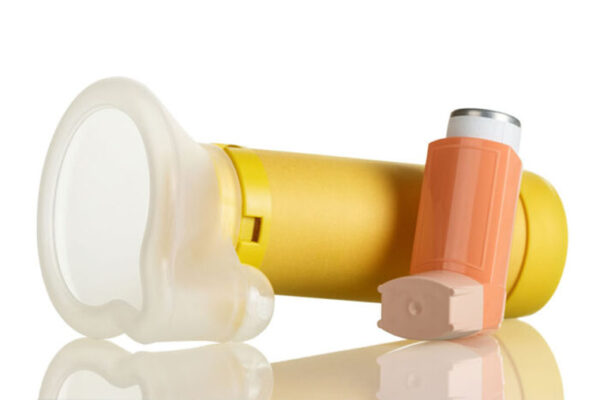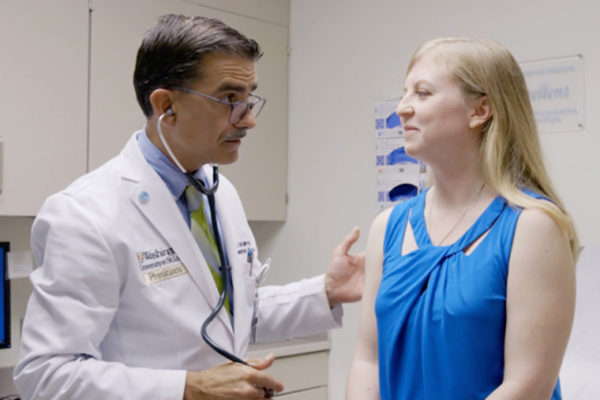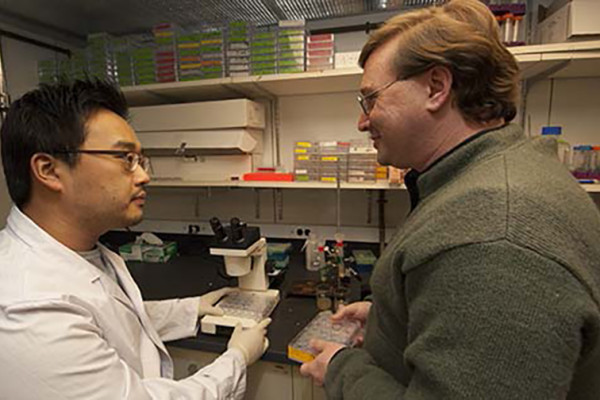In a recent clinical study of people with asthma, scientists found that those who consumed the least amount of soy had the most flare-ups of their asthma symptoms. Armed with this and other evidence of soy’s potential benefit for asthma, Washington University School of Medicine in St. Louis and other institutions around the country are conducting a trial to test the effect of soy compounds on asthma symptoms.
The trial, called the Study of Soy Isoflavones in Asthma (SOYA), will include 19 clinical sites and is administered by the American Lung Association’s Asthma Clinical Research Centers.
“The number of people in the United States who have asthma has increased in recent years,” says Mario Castro, MD, the lead investigator at Washington University School of Medicine’s study center and a lung specialist at Barnes-Jewish Hospital. “One reason for the increase could be dietary changes that decrease consumption of foods, such as soy, that are rich in antioxidants.”
About 24 million Americans have asthma, a number that has risen disproportionately over the past decades. A recent study showed that asthma prevalence in young adults increased from 8 percent in the mid 1980s to 12 percent in 2006. At the same time, the population decreased its consumption of fresh fruit, green vegetables and other foods that are important sources of antioxidants.
Soybeans contain powerful antioxidants called isoflavones, which past studies have linked to lower risk of heart disease, osteoporosis and some kinds of cancer. Research also has shown that soy isoflavones can slow the production of inflammatory components in the bloodstream. Inflammation is an important cause of asthma symptoms.
“Many patients aren’t getting good control of their asthma from available medications,” says Castro, professor of medicine in the Division of Pulmonary and Critical Care and of pediatrics. “So we see a need for a different approach, and if soy proves to be beneficial for asthma, a simple modification in diet could be a workable and inexpensive solution for many patients.”
Nationwide, the study will enroll 380 asthma patients age 12 and older who are taking either inhaled corticosteroids or a leukotriene modifier such as Singulair and who still have asthma symptoms that are not well controlled. All participants must have low amounts of soy in their normal diet.
“If asthma patients are wheezing or feeling short of breath more than once a week, waking up at night because of asthma symptoms more than once a week, or using their rescue inhalers a couple of times a week, we consider that poorly controlled asthma,” Castro says.
Study participants will continue on their current medications, and they will be randomly assigned to receive twice-daily supplements containing 100 milligrams of soy isoflavones or placebo tablets. Over the 24-week course of the study, patients will visit a study clinic nine times for asthma tests, including tests of lung function and airway responsiveness. The researchers will also measure markers of airway inflammation and will ask patients to record their symptoms in a daily diary. Study patients will be compensated $430 for their participation.
For more information, call PeChaz Clark at (314) 362-1000.
The study is funded by the National Heart Lung and Blood Institute. Archer Daniels Midland Co. will provide soy isoflavone and placebo tablets for the study.
Washington University School of Medicine’s 2,100 employed and volunteer faculty physicians also are the medical staff of Barnes-Jewish and St. Louis Children’s hospitals. The School of Medicine is one of the leading medical research, teaching and patient care institutions in the nation, currently ranked fourth in the nation by U.S. News & World Report. Through its affiliations with Barnes-Jewish and St. Louis Children’s hospitals, the School of Medicine is linked to BJC HealthCare.


